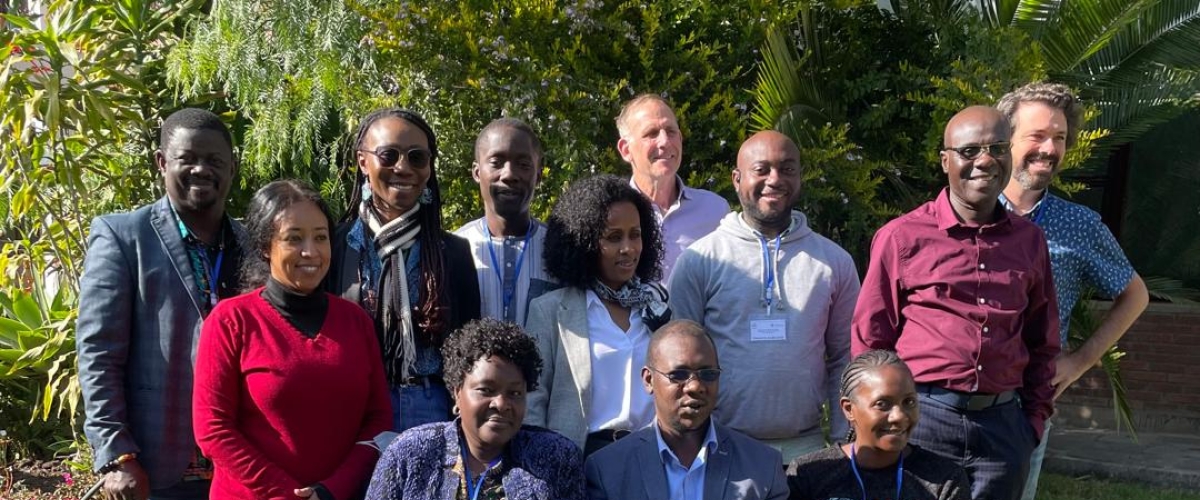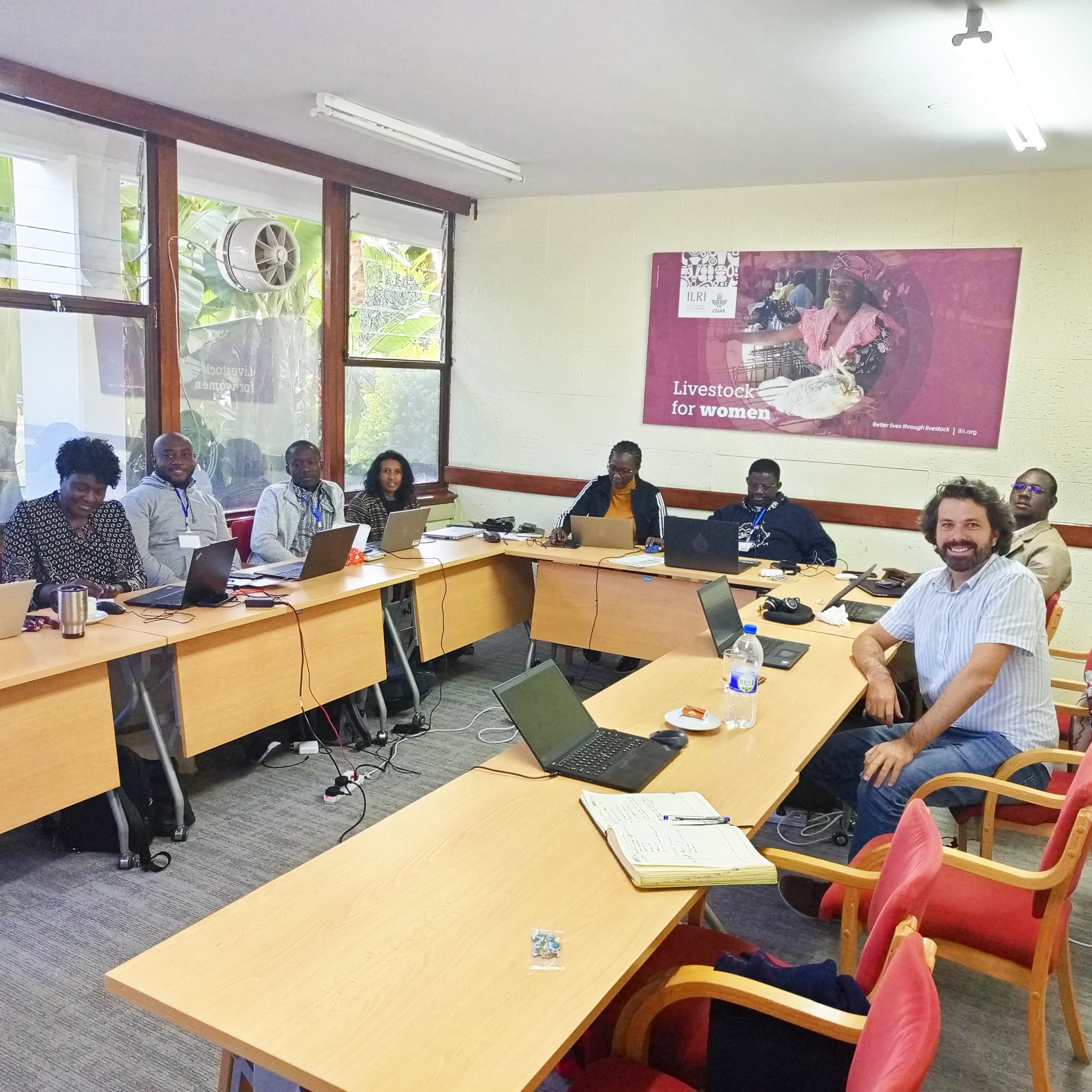
Authors: Bridget Kakuwa-Kasongamulilo [1]& Benjamin Abugri[2]
In a move poised to transform the landscape of African agricultural knowledge sharing, leading research and innovation partners concluded the “Second Workshop to Operationalize the African Agricultural DSpace Repository” this week. The three-day workshop, hosted at the International Livestock Research Institute (ILRI) campus in Addis Ababa from December 11 to 13, brought together partners from CGIAR and the CAADP-XP4 network. Representatives from FARA, CCARDESA, AFAAS, CORAF, ASARECA, and CGIAR experts led by ILRI worked in concert to strengthen the African Agricultural Research and Innovation Institutions Space (AARIISpace).
The event was not merely a routine meeting of technical experts. Instead, it signalled an important step in building a robust digital platform for sharing, curating, and disseminating agricultural knowledge. The workshop served as a pivotal checkpoint, enabling partners to gauge their progress since the signing of the Knowledge Management Partnership Framework at the African Agribusiness and Science Week (AASW8) in Durban. It also laid out concrete plans for using metadata standards, integrating Indigenous Knowledge, and applying AI-driven analytics to bolster AARIISpace’s capabilities.
“By mid-2025, we expect to configure, launch, and roll out AARIISpace to a wide array of regional and national stakeholders,” said Michael Victor, Head of Communications, Advocacy and Knowledge Management at ILRI. “This workshop underscores our collective commitment to building a sustainable, scalable, and inclusive platform that democratizes access to agricultural research and innovation.”

Echoing these sentiments, Benjamin Abugri, Knowledge Management, Digitalization, and Learning Lead Specialist speaking on behalf of the CAADP-XP4 Consortium, highlighted that AARIISpace “will be a cornerstone of ensuring inclusive, sustainable, and scalable impact” on the continent’s agricultural sector.
The workshop’s successes rest on a strong three-year foundation of partnership and innovation. During this period, over 50 practitioners have obtained Knowledge Management certifications through the Knowledge Management for Agricultural Development (KM4AgD) Challenges and conferences. Strategic policy dialogues and sessions—such as the Gender Equality and Social Inclusion (GESI) workshop in Malawi and knowledge management training in Johannesburg—have honed the partners’ collective expertise. Knowledge-sharing fairs in Zimbabwe and Ethiopia have further spotlighted best practices and cutting-edge research outputs, while policy validation exercises have ensured that emerging strategies remain closely aligned with stakeholder needs.
In short, the workshop was the latest milestone in a vibrant ecosystem of collaborative activities. Participants leveraged ILRI’s decade-long experience with CGSpace, a proven repository platform, to shape the AARIISpace framework. The proposed common vocabularies, standardized metadata, and next-generation functionalities are all geared toward making African agricultural knowledge more accessible and usable than ever before.
Looking forward, the partners have sketched an ambitious roadmap. They have reaffirmed their commitment to the Memorandum of Understanding guiding their collaboration, extending joint activities through 2025. High on the agenda is the publication of the inaugural Africa Knowledge Management Report, as well as expanding KM4AgD Communities of Practice. Embracing subsidiarity principles, the partners plan to encourage national-level Knowledge Management policies and strategies, ensuring that insights flow smoothly from research labs to rural fields.
To cap it off, the partners aim to jointly develop funding proposals and host a global Knowledge Management Share Fair focusing on KM4AgD and AI in Africa. This event would provide a global stage for showcasing how homegrown African innovations in digital knowledge management can accelerate agricultural development.
As the workshop drew to a close, CGIAR and CAADP-XP4 Partners expressed gratitude to all participants for their dedication, expertise, and energy. The stage is now set for AARIISpace to become a beacon of agricultural innovation. However, the initiative’s full realization will require collective effort, including financial and human resources, and the sustained engagement of governments, private sector actors, and farmer organizations.
With the foundation firmly laid, the next phase of collaborative action promises to translate this synergy into tangible improvements for farmers, researchers, and policy-makers across the continent. This will ultimately cultivate a richer, more equitable harvest of knowledge and innovation for Africa’s agricultural future.
[1]Ms Bridget Kakuwa-Kasongamulilo is Information, Communication and Knowledge Management Officer at the Center for Coordination for Agriculture in Southern Africa (CCARDESA)
[2] Mr Benjamin Abugri is Lead Specialist for the Knowledge Management, Digitalization and Learning Cluster at the Forum for Agricultural Research in Africa (FARA)





